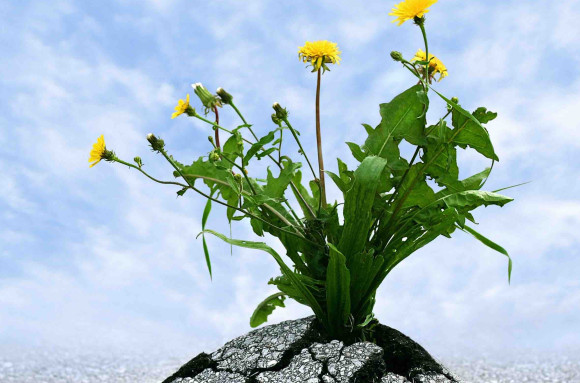Time Required
Daily for one week. See if you can give up a different pleasure for one week each month.
How to Do It
- Select something that you enjoy doing on a regular basis and that you have unlimited or nearly unlimited access to. A good choice may be a particular food or beverage that you enjoy, such as chocolate or soda.
- On day one, allow yourself to indulge as you normally would in this activity. Scarf down a chocolate bar. Pour yourself a cold beverage. Veg out in front of the TV.
- Then, for one week, do not allow yourself to indulge in this pleasure at all. If you’re giving up chocolate, avoid any foods that contain it; if you’re giving up TV, try not to even watch a video on your phone.
- At the end of the week, allow yourself to indulge again. As you do so, pay attention to how you feel. Are you noticing certain physical sensations (e.g., taste and texture of the chocolate) more than usual? How pleasurable is the experience? What kind of mood are you in?
- Try to go through this same process with a different pleasure the following month. In between these weeks of Give It Up, try to focus your attention on the pleasures you enjoy every day. What are the activities or experiences that you actually enjoy doing? What do you enjoy about them—how do they make you feel? How do you think you would feel if you were prevented from enjoying these activities ever again?
Why You Should Try It
Research suggests that one of the biggest challenges to lasting happiness is our great capacity for adaptation: We tend to get used to the things that bring us pleasure in life, and, before long, their positive effects wear off. We no longer enjoy them in the way we once did.
However, research has identified a way to sustain these little pleasures over time: by temporarily giving them up. That can lead us to enjoy and savor that activity more once we resume it—and the ability to savor the small pleasures in life is a key to happiness. This practice guides you through the process of abstaining from a pleasurable activity for a week as a way to heighten your appreciation of it. Over time, the goal is not only to derive more pleasure from this activity but to recognize how we take lots of pleasures for granted and to try to savor them more.
Why It Works
One of the greatest enemies to happiness is “hedonic adaptation,” which is the tendency for people to grow accustomed to pleasurable things and therefore appreciate them less. Temporarily giving up pleasurable activities counteracts hedonic adaptation and can thus increase the pleasure derived from those activities.
Giving something up and then coming back to it later can build anticipation and make the experience feel more novel and exciting. It can also make people more likely to focus on and savor the pleasurable aspects of the experience rather than giving in to distractions. We often assume that more is better—that the greatest pleasures should come from abundance and indulgence—but research suggests that some degree of scarcity and restraint is more conducive to happiness.
Evidence That It Works
Quoidbach, J., & Dunn., E. W. (2013). Give it up: A strategy for combating hedonic adaptation. Social Psychological and Personality Science, 5, 511-516.
Canadian college students (mostly women) who were instructed to give up chocolate for a week savored it significantly more and experienced greater positive mood when they ate it again at the end of the week, compared with people who either indulged in it extra over that week or received no special instructions and just consumed their normal amount.
Who Has Tried the Practice?
This practice has not been extensively studied in diverse groups and cultures.
Keep in Mind
Stress may make it difficult to abstain from your chosen pleasurable activity, given that people tend to indulge in sweets more frequently when they are under stress.
Giving up certain activities may not be worthwhile, or may have negative consequences during the period of abstention. In the United Kingdom, female university students who worked out at least four times a week abstained from exercise for 72 hours. After three days without exercise, the women decreased in pleasure and energy and increased in feelings of tension, anxiety, and dissatisfaction with their bodies.
As you take a break from one activity, there is a risk of compensating with another unhealthy activity. Regular smartphone users abstaining from social media filled their time with other smartphone applications. Regular cannabis users engaged in more alcohol and tobacco use during two weeks without cannabis.
There is also a risk of withdrawal if you are using this practice for certain substances. People who regularly consume caffeine, cannabis, and nicotine products tend to experience physical and mental health disturbances during periods of abstinence.
References
Allen, S. S., Allen, A. M., Tosun, N., Lunos, S., al'Absi, M., & Hatsukami, D. (2014). Smoking- and menstrual-related symptomatology during short-term smoking abstinence by menstrual phase and depressive symptoms. Addictive Behaviors, 39(5), 901–906.
Allsop, D. J., Dunlop, A. J., Saddler, C., Rivas, G. R., McGregor, I. S., & Copeland, J. (2014). Changes in cigarette and alcohol use during cannabis abstinence. Drug and Alcohol Dependence, 138, 54–60.
Brown, L., & Kuss, D. J. (2020). Fear of missing out, mental wellbeing, and social connectedness: A seven-day social media abstinence trial. International Journal of Environmental Research and Public Health, 17(12), 4566.
Doets, E. L., & Kremer, S. (2016). The silver sensory experience—A review of senior consumers’ food perception, liking and intake. Food Quality and Preference, 48, 316–332.
Leischow, S. J., Valente, S. N., Hill, A. L., Otte, P. S., Aickin, M., Holden, T., Kligman, E., & Cook, G. (1997). Effects of nicotine dose and administration method on withdrawal symptoms and side effects during short-term smoking abstinence. Experimental and Clinical Psychopharmacology, 5(1), 54–64.
Niven, A., Rendell, E., & Chisholm, L. (2008). Effects of 72-h of exercise abstinence on affect and body dissatisfaction in healthy female regular exercisers. Journal of Sports Sciences, 26(11), 1235–1242.
Pool, E., Brosch, T., Delplanque, S., & Sander, D. (2015). Stress increases cue-triggered “wanting” for sweet reward in humans. Journal of Experimental Psychology: Animal Learning and Cognition, 41(2), 128–136.
Poor, M., Duhachek, A., & Krishnan, S. (2012). The moderating role of emotional differentiation on satiation. Journal of Consumer Psychology, 22(4), 507–519.
Preuss, U. W., Watzke, A. B., Zimmermann, J., Wong, J. W. M., & Schmidt, C. O. (2010). Cannabis withdrawal severity and short-term course among cannabis-dependent adolescent and young adult inpatients. Drug and Alcohol Dependence, 106(2–3), 133–141.
Sigmon, S. C., Herning, R. I., Better, W., Cadet, J. L., & Griffiths, R. R. (2009). Caffeine withdrawal, acute effects, tolerance, and absence of net beneficial effects of chronic administration: Cerebral blood flow velocity, quantitative EEG, and subjective effects. Psychopharmacology, 204(4), 573–585.
Giving up something good for a while can help us savor it all the more later. Do you have an attitude of gratitude? Take our Gratitude quiz to find out:

 This practice is part of the
This practice is part of the





Comments
and Reviews
Anja Pöhlmann
Alice Smiley
It was okay. I’ll try it again next month
MB
This was the best practice so far. It helped me feel more focused and energized to complete tasks on my to do list. It led to a volunteer opportunity and meeting new people. I plan to continue practicing.
{name}
I did not do the first week as it made an assumption that I had something I really enjoyed on a daily basis I was willing to give up
Nicola Laker
Wrong timing for me, maybe I will pick it up again in the future?
Jefforey Murphy
Keeping what you are trying to accomplish and do top of mind helps you be mindful of it so the muscle memory doesn't kick in.
The Greater Good Toolkit
Made in collaboration with Holstee, this tookit includes 30 science-based practices for a meaningful life.
The Greater Good Toolkit
Made in collaboration with Holstee, this tookit includes 30 science-based practices for a meaningful life.